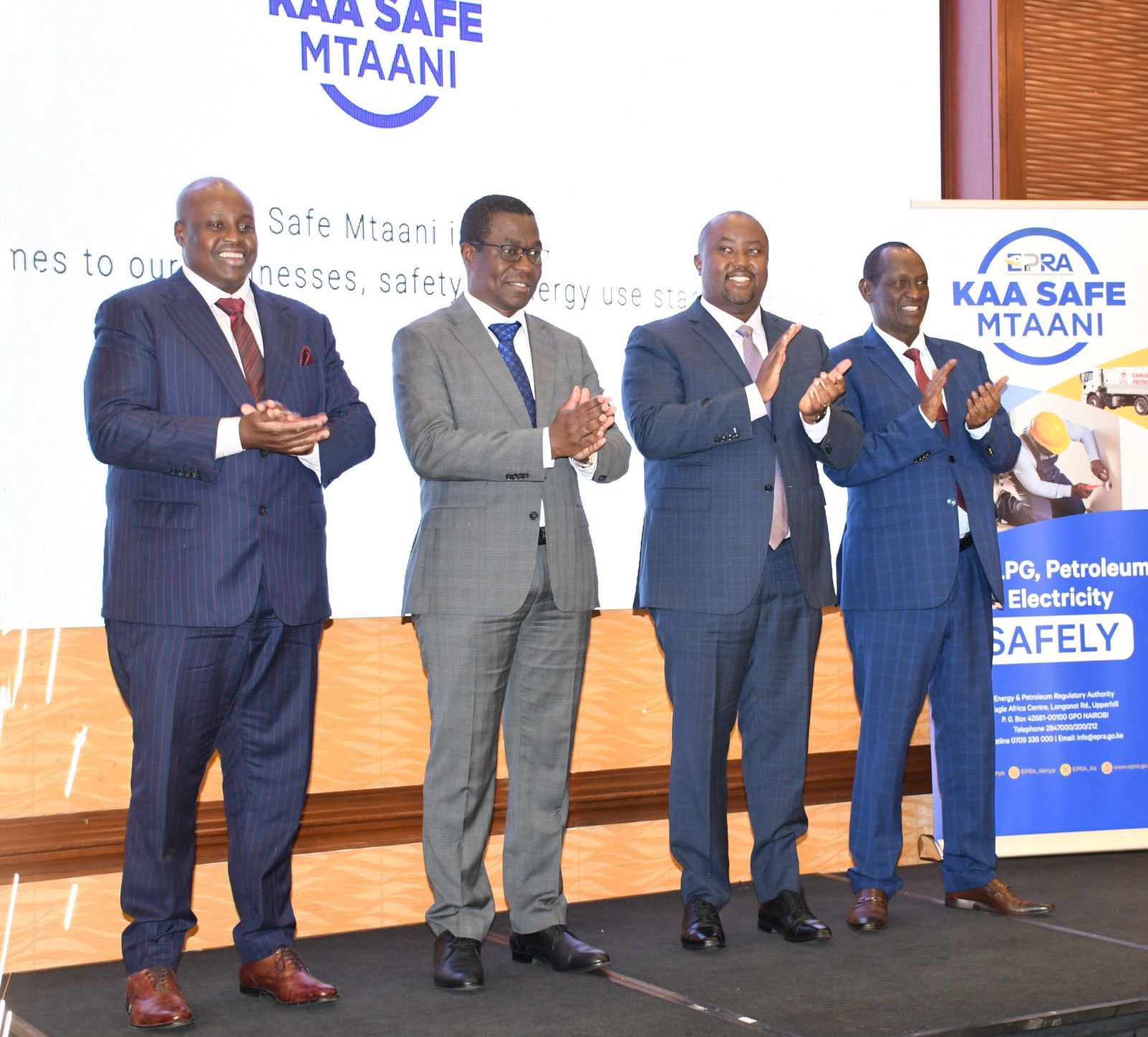

The majority of LPG users are unaware of the safety precautions to take when using cooking gas. This was revealed on Tuesday, April 15, during the launch of the Kaa Safe Mtaani Campaign.
The initiative, spearheaded by Epra, takes on a collaborative approach to sensitise stakeholders on appropriate usage and safety when handling electricity, gas and petroleum products.
The campaign aims to heighten consumers’ ability to detect potential problems with the products and enhance their confidence with energy systems.
Energy CS Opiyo Wandayi, who was the chief guest at the launch, said the government, through a series of initiatives such as the Last Mile Connectivity Programme, had driven increased uptake of energy products.
He revealed that the government is keen to facilitate the shift to clean energy, using multiple approaches, hence it was paramount that progress factors in building consumer confidence in the products they use.
“Today, less than one per cent of Kenyans use electricity as their main cooking fuel. We purpose to electrify most cooking needs by 2050 as part of our national drive towards net zero emissions.”
Stakeholders underscored the importance of continuous learning, saying emerging challenges needed evolving solutions.
For instance, in the past, users were trained to detect gas leaks by smell. This was challenged during the Covid-19 pandemic, which reduced the efficacy of this approach. To override this, consumers were urged to maintain proper aeration by opening doors and windows before lighting fires.
Proper transportation and storage of gas cylinders, especially for home use, was also cited as a concern. In many cases, cylinders are transported by riders, who do not keep them upright. Additionally, many consumers store the cylinder inside the house, next to the cooker, which it should not be.
Best practice recommends storing the gas cylinder outside the house. With this reality difficult to actualise, the regulator pointed out that there should be at least one foot (30 cms) between the cooker and the cylinder to minimise risk of fire.
Gas vendors have also exhibited low levels of safety awareness. Kariobangi South chief Jane Muthoni said it was common to find traders storing their firefighting equipment far from the gas cylinders.
“Then you wonder if fire comes up, how will this person who is selling gas be able to go for that cylinder inside the bedroom to come and fight the fire,” she posed.
Aside from safety, the scope of the campaign highlighted complaint reporting mechanisms and energy efficiency approaches.
Among issues that consumers can report to Epra for resolution are overbilling of electricity, vandalism of infrastructure such as transformers, unsafe installations, and individuals undertaking electrical works without a license.
Others are overpricing and sale of petroleum products, unauthorised gas refilling stations and sale of substandard LPG cylinders and poor service delivery from licensed providers.
Energy efficiency, which goes a long way in reducing electricity bills, ensuring sustainable use and improving the lifespan of appliances, were encouraged.











